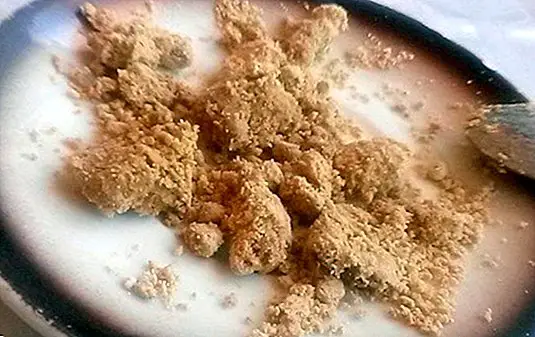Acute hepatitis: symptoms, causes and treatment
The acute hepatitis, like the rest of the rest liver diseases, is characterized by the inflammation of the organ due to the attack of a viral agent. If the symptoms worsen, this swelling can then develop into other, more serious types of hepatitis, also known as the "five hepatitis viruses" (ie, A, B, C, D, and E).
The most common of these is the Hepatitis A, which can be contracted by simply taking food in poor condition or being exposed to places where hygienic conditions are not the most conducive, which causes inflammation of the liver. Also the hepatitis B It is another viral disease that can be contracted simply by getting a piercing or tattoo. That is why it is very important to go to a qualified professional if we want to become one.

Since the beginning, Hepatitis can be asymptomatic, but with the passage of the weeks it is possible that the first signs appear. From there, it is very important to go to the doctor to make an extensive analysis of the situation.
Symptoms of acute hepatitis
Although in most cases, the inflammation will subside naturally without the need to carry out any specific treatment. However, it does not hurt to know some of the most common symptoms in case it is necessary to treat the disease at some point:
- Abdominal pain. As the whole area of the liver is inflamed before any hepatitis, as the patient will suffer a severe pain in the upper abdomen.
- Lack of appetite. During any process of hepatitis the patient will lose much of the desire to eat. You may also feel nausea or vomiting after any meal. This can then translate into a considerable weight loss.
- High fever. The body temperature will also rise to 38-39 degrees as a defense mechanism of the body itself before the appearance of any virus.
- General reluctance and laziness. Hepatitis can also cause a great feeling of reluctance and neglect on the part of the patient.
- Elevated bilirubinThis is a pathology that is characterized by yellowing of the eyes or skin. The reason? Well, because there is an increase in the production of bilirubin, a component that is scattered throughout the body that causes this unusual color to appear many areas of the body. It can also be passed on to feces or urine.

What can be the treatment for acute hepatitis?
Since it is not a very serious condition (hence it is called acute), in most cases it will not be necessary to take a very specific treatment. Although it does not hurt to take into account a series of recommendations so that the situation does not result later in other more serious liver diseases.
In the first place, it is recommended to reduce considerably the consumption of alcohol and tobacco during the first days that a pain is felt in the area of the abdomen.

This is because the strongest spirits (whiskey, vodka, gin ...) can cause a simple acute hepatitis to turn into cirrhosis or even into Liver cancer.
Once the patient has placed himself in the hands of the doctor if the symptoms do not subside in the first three weeks, then surely a series of more specific drugs will have to be taken. Once this disease has been overcome, the patient can be vaccinated against hepatitis A and B so that he will not suffer the same symptoms in the future or avoid liver damage. This article is published for informational purposes only. It can not and should not replace the consultation with a Physician. We advise you to consult your Trusted Doctor. ThemesLiver


